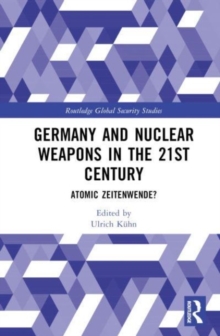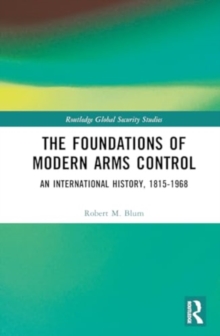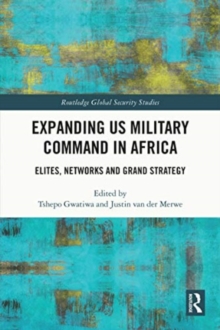
Iran and Nuclear Weapons : Protracted Conflict and Proliferation PDF
by Saira Khan
Part of the Routledge Global Security Studies series
Description
This book investigates what is driving Iran's nuclear weapons programme in a less-hostile regional environment, using a theory of protracted conflicts to explicate proliferation.
Iran’s nuclear weapons program has alarmed the international community since the 1990s, but has come to the forefront of international security concerns since 2000. This book argues that Iran’s hostility with the United States remains the major causal factor for its proliferation activities. With the US administration pursuing aggressive foreign policies towards Iran since 2000, the latter’s security threat intensified. A society that is split on many important domestic issues remained united on the issue of nuclear weapons acquisition after the US war in Iraq. Consequently, Iran became determined in its drive to acquire nuclear weapons and boldly announced its decision to enrich uranium, leaving the US in no doubt about its nuclear status.
This book underscores the importance of protracted conflicts in proliferation decisions, and underpinning this is the assumption that non-proliferation may be achieved through the termination of intractable conflicts. The aims of this work are to demonstrate that a state’s decision to acquire nuclear weapons depends largely on its engagement in protracted conflicts, which shows not only that the presence of nuclear rivals intensifies the nuclear ambition, but also that non-nuclear status of rival states can promote non-proliferation incentives in conflicting states inclined to proliferate.
This study will be of great interest to students of Iran, Middle Eastern politics, nuclear proliferation and international relations theory.
Saira Khan is a Research Associate in the McGill-University of Montreal Joint Research Group in International Security (REGIS).
Information
-
Download - Immediately Available
- Format:PDF
- Pages:156 pages
- Publisher:Taylor and Francis
- Publication Date:25/09/2009
- Category:
- ISBN:9781135261825
Other Formats
- EPUB from £13.76
- PDF from £63.00
- Paperback / softback from £16.99
- Hardback from £36.99
Information
-
Download - Immediately Available
- Format:PDF
- Pages:156 pages
- Publisher:Taylor and Francis
- Publication Date:25/09/2009
- Category:
- ISBN:9781135261825










